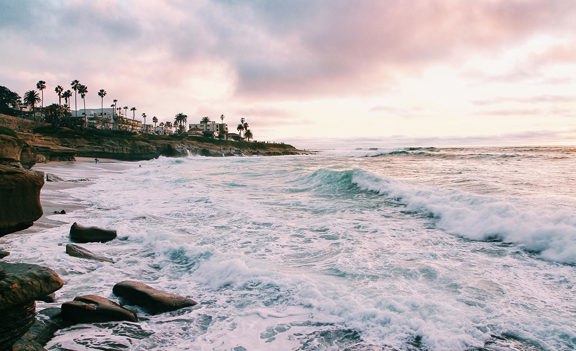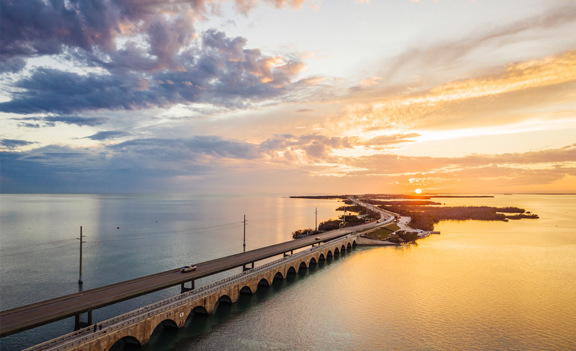
Common Mistakes First-Time RVers Make & How to Avoid Them
- RV Lifestyle
Between 2009 and 2021, there was an incredible 362 percent increase in RV shipments, and first-time RVers purchased many of the models bought during this time. In addition to this, the RV market is showing no signs of slowing down, with thousands of purchases made daily worldwide.
This is unsurprising, considering there is so much hype surrounding owning a motorhome nowadays. More and more people realize that they can live out many of their travel dreams while enjoying the freedom of the open road in their very own RV. However, even though the RV landscape is admired for its fun, excitement, thrills, and relaxation offerings, many beginner or first-time RVers make mistakes.
Fortunately, many of these mistakes can be avoided if you know what they are and how to avoid them. In our blog, the team at Cruise America has used our extensive RV knowledge to compile a list of the common mistakes first-time RVers make and how to avoid them so that you can enjoy stress-free travels. So continue reading to avoid a bumpy ride as an RV Rookie!
What Are Six Common Mistakes First-Time RVers Make & How To Avoid Them?
No one wants their first few RV trips to turn into nightmares. Of course, you can’t plan for every eventuality, but there are a few common newbie mistakes that you can avoid once you know more about them. So buckle in and cast your eyes downward to learn more about the mistakes you should avoid when getting ready to hit the road and explore.
-
Being Ill-Prepared At The RV Dump Station
One of the biggest mistakes first-time RVers make is not knowing what to do at an RV dump station. We know it’s no one’s idea of fun, but it’s a necessary evil you need to know how to take care of if you have embarked on a road trip in an RV. Not to mention not knowing how to dump your tanks won’t win you any points when you’re in line with fellow campers.
Luckily to avoid any unpleasantries and looking like a fool, you can practice dumping your tanks before you embark on your trip. If you can’t do that, you can watch YouTube tutorials on the make and model you own to learn how the process is conducted.
Additionally, if you’re renting a motorhome from Cruise America, you can ask one of our team members to explain or show you how the dumping process works. With this knowledge, you’ll be ready to dump it and drive sans frustrated looks or mumbled commentary.
-
Forgetting To Find Out About Hookups
If you’ve never camped in an RV before or are new to the process, it can be easy to forget about finding out about site hookups. Unlike when you stay in a hotel room or bed and breakfast, you can’t expect every campground to supply electricity, ablutions, and running water.
In fact, numerous campsites throughout the US have no hookups or only one of the three, and the very last thing you want is to arrive and not have the facilities you expect.
That’s why to avoid this issue, you should always try to make a reservation at a campground ahead of schedule. Making a reservation beforehand will allow you to find out if the RV sites have hookups and how much extra you will need to budget to access them.
If you don’t want to make a reservation telephonically, you can browse a campground’s website to find out what amenities they have throughout the campground. In addition to finding this out, you need to make sure you know the types of electrical hookups you need, and you should always carry adapters if possible.
Should you decide to camp without water or sewer hookups, you need to monitor your tanks so that you know when to get to a dump or freshwater top-up station when you need to.
-
Forgetting To Plan For Repairs And Maintenance
Like a car, you must ensure you plan for repairs and maintenance when you own a motorhome.
Unfortunately, many first-time RVers don’t realize that they need to plan for repairs and maintenance, which can become a major problem down the line.
For this reason, having an RV maintenance plan or a savings fund specifically for your motorhome repairs and maintenance is an excellent idea. These costs will pop up when you least expect them, and you don’t want to be dealing with a tire blowout, broken AC, or faulty heater while on vacation.
If you have a flair for DIY tasks, you might be able to handle most things on your own, but there will come a time when you need professional assistance, so it’s best to be safe than sorry. Luckily this will pay off in the long run since you’ll have a properly functioning motorhome that stands the test of time.
-
Deciding Against Driving Classes
Another common mistake many first-time RVers make is forgoing motorhome driving lessons. If you’ve never driven an RV before or towed a camper, having a qualified instructor show you the ropes is important. If you don’t take lessons, you increase your likelihood of experiencing an accident that could damage your rig and lead to injuries to you and others on the road.
With a qualified RV driving instructor, you’ll learn how to confidently drive, park, reverse, and get into and out of tight spots, a vital skill at crowded campgrounds. There are also safety and first aid courses you can look into, which are helpful to have under your belt if you’re planning to travel the country in a motorhome — whether bought or rented.
-
Failing To Plan A Route Correctly
Google is one of the best route-planning tools first-time RVers can use, but it isn’t foolproof. Many RVers make the mistake of planning a route by only entering their destination address into Google Maps and putting their motorhome in gear. Although this is tempting, it leaves room for issues to pop up as you cruise toward your destination.
For example, if you don’t plan your route by investigating the roads you will take, you won’t know if some roads have restricted big vehicles like some large Class A motorhomes.
Additionally, you could encounter smaller or tighter-fitting residential streets, making it difficult to maneuver, leading to possible accidents or more time on your ETA.
Should you not want to go through the effort of meticulously planning each route by examining maps and other road rules, you can use an app like RV Trip Wizard, which will help you avoid roads, tunnels, and other obstacles that could put a dampener on your trip.
-
Relying On Campground Connectivity
It’s a sad reality, but you can’t trust every campground’s claims of “free Wi-Fi.” Nearly every RV campground tells campers that they provide free Wi-Fi, and although this might be true, there are often hidden clauses.
For example, you might have access to free Wi-Fi, but it might only be available in certain communal areas. Additionally, a campground might have site-wide Wi-Fi, but it could be impossible to connect during peak hours. Or it might be spotty with a campground not having the best signal extenders installed for better signal.
If you’re a remote worker or attend an online school, ensuring uninterrupted working or studying hours on a campground’s free Wi-Fi could be impossible. So, don’t make this mistake, and ensure you always have your own backup Wi-Fi available.
If you can’t afford your own personal modem just yet (no judgment from us), you can check review sites to determine if the campground’s Wi-Fi is less likely to give you any issues.
Avoid These Mistakes and Buy Or Book An RV From Cruise America
Hopefully, you will be better prepared for your RV travels now that you know the common mistakes first-time RVers make and how to avoid them. Armed with this information, all you need is to rent or buy a motorhome to turn your RV adventure plans into a reality, and we can help.
At Cruise America, we have an extensive collection of premium quality RVs for sale or to buy and can help match you with your dream motorhome. All you need to do is contact us here, and we’ll help you start your RV journey.





